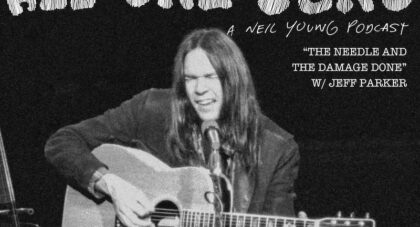On villagers, the eighth album from Tim Rutili's steadfast Califone project, the singer bemoans “a Roxy Music cassette dying in the dashboard sun.” That image serves as a fitting description of the sound here: open pop melodies and soulful singing at the mercy of time, nature, and memory. Rutili joins us to discuss his creative process, after funeral disassociation, and how reality television influenced the album as much as, or more than, his lofty cinematic obsessions . . .
Only the good shit. Aquarium Drunkard is powered by its patrons. Keep the servers humming and help us continue doing it by pledging your support.
To continue reading, become a member or log in.


